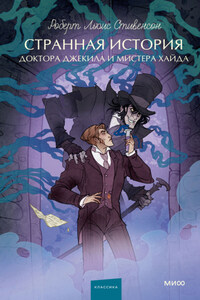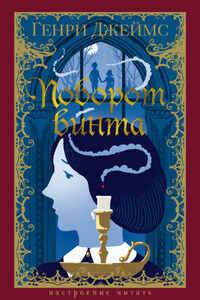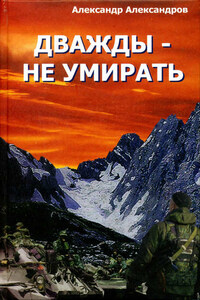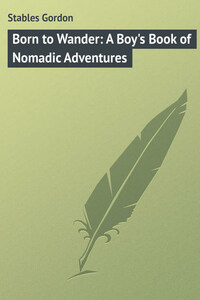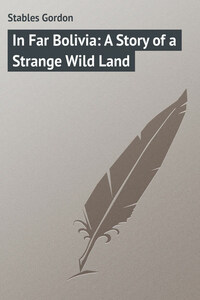Chapter One
The Young Chief of Arrandoon – The Rising Storm – Lost in the Snow
It was winter. Allan McGregor stood, gun in hand, leaning against a rock half-way down the mountain-side, and, with the exception of himself and the stately deer-hound that lay at his feet, there was no sign of any living thing in all the glen; and dreary and desolate in the extreme was the landscape all around him. Glentroom in the summer time, when the braes were all green with the feathery birches, and the hillsides ablaze with the purple bloom of the heather, must have been both pleasant and romantic; but the birch-trees were now leafless and bare, the mountains were clad in snow, and the rock-bound lake, that lay far beneath, was leaden and grey like the sky itself, except where its waves were broken into foam by the snow-wind. That snow-wind blew from the north, and there was a sound in its voice, as it sighed through the withered breckans and moaned fitfully among the rocks and crags, that told of a coming storm.
Allan was the young laird of Arrandoon. All the glen had at one time belonged to his ancestors – ay, and all the land that could be seen, and all the lochs that could be counted from the peaks of Ben Lona. His father, but two short years before the commencement of this strange story of adventure, had died, sword in hand, at the head of his regiment in distant Afghan, and left him – what? A few thousand sheep, a few thousand acres of heather land on which to feed them, the title of chief, and yonder ancient castle, where dwelt his widowed mother and his sister.
Although he was a good Highland mile from his home, the castle, visible in every line and lineament from where he stood, formed quite a feature in the landscape. A tall grey building, with many a quaint and curious window, and many a turret chamber, it was built on the spur of the mountain, around which swept a brown hill-stream, the third side, or base of the triangle, being bounded by a moat now dry, and a drawbridge never raised. Far down beneath it was the grey loch, to which the noisy stream was hurrying.
Every old castle has its old story, and Arrandoon was no exception. It had been built in troublous times – built when the wild clans of the McGregors were in their glory. There the chiefs had dwelt, thence had they often sallied to tread the war-path or arouse the chase, and in its ancient halls many a gay revel had been held; but peace with the Lowlands, strange to say, had wrought the downfall of the chiefs of Arrandoon. The country had been thrown open, Englishmen had visited the glens, and friendships had been formed between those who once were deadly foes. In their own Highland homes the McGregors had entertained strangers in a regal fashion. Herein was pride – the pride that goes before a fall. When the chieftains went south, there, too, they would lord it, and herein lay more pride – the pride that caused the fall – for, alas and a lack-a-day! for the want of money land must be sold. Thus the stranger crept into the country of the Gael, and gold did for the proud McGregors, what the sword itself could never achieve – it laid them low.
That was one chapter of this castle’s story; the second is even a sadder one, for it tells of the days when, bereft of their lands, the proud chiefs of the McGregors, scorning trade, placed their claymores at the service of the reigning monarch, and fell in many a foreign land, fighting in a cause that was not their own, because fighting, they thought, was honourable, and fighting gave them bread. And their wives and their little ones were left at home to mourn. But no stranger saw the tears they shed.
It was towards this castle that the eyes of Allan McGregor were turned when first we see him; it was of the mournful history of his family he was thinking, as he stood on the hillside on this bleak, cold wintry evening.
“Bah!” he said to himself, “the very game seem to forsake the glen. Just look here,” he continued, addressing the dog, who looked up, wagging his tail, “only two hares and a brace or two of birds, with a wild cat that we shot at hazard, didn’t we, Bran? And I’m sure we’ve walked fully twenty miles, haven’t we, Bran?”
“Twenty miles fully,” Bran seemed to say, speaking with his eyes and his tail.
“And really, Bran, when my English college friends come to see me – as they will to-night, you know – I’ll hardly have anything to give them to eat, leaving sport out of the question; will I, Bran?”
Bran looked very serious at this, for he knew every inflection of his master’s voice.
“Ah, Bran, Bran! my dear old dog! it is very hard being a Highland chieftain with nothing to support one’s dignity on. Dignity, indeed! Why, Bran, I have positively to put mine in the pot and boil it for dinner. Now rouse up, Bran; I want to speak to you, because I must have somebody to open my heart to.”
Bran sat up on his haunches, and young Allan placed his hand on his head.
“Yes, Bran, my heart seems strangely full of something, and I think, old dog, that it is hope! hope for better times to come. You see our castle home down yonder, Bran?”


